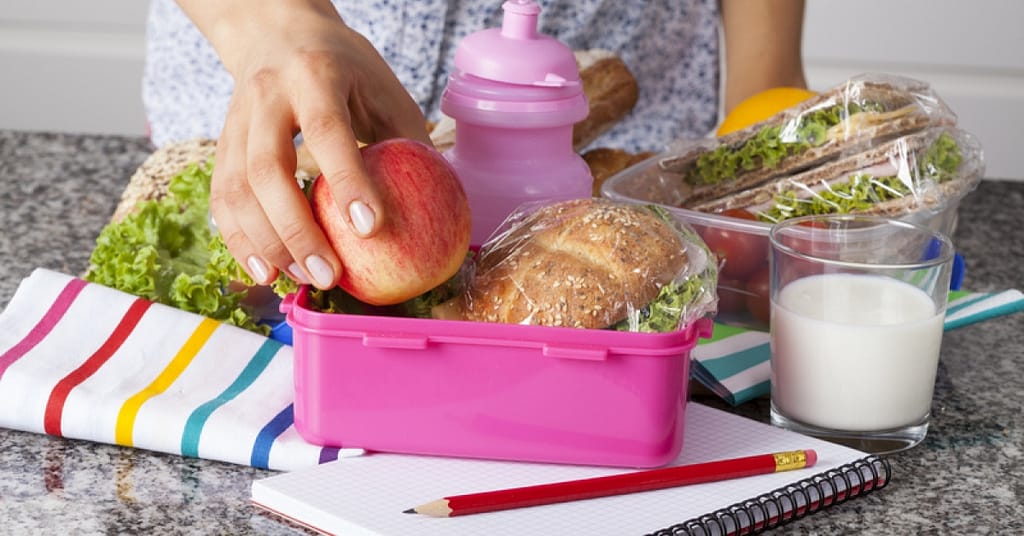(Carrick Pharmacy News) Maybe you’ve already been back-to-school shopping and are ready to send your kids into a new school year with all the right supplies. But do you know how to keep your kids healthy as school starts back?
Now is a great time to make sure you’re preparing your child for a healthy and safe school year. Here are some items to start thinking about for your child as school starts back up.
With the ongoing COVID-19 pandemic, schools have implemented systems and new rules and continued to make changes for the upcoming school year. These new changes may include the wearing of masks, separating desks, and social distancing to name a few measures.
If you have any questions, ask your child’s school about their plans and procedures for this year. Always speak with your health care provider about any concerns you have.
Read on for more information.
Flu vs. Cold
In addition to the risk of the spread of COVID, the start of the school season is also the start of flu season. While catching the flu might be an annoyance for an adult, it can have devastating consequences for a child. So what can you do to keep your child flu-free as school ramps back up?
Most importantly, make sure your children (and everyone else in your household) get their annual flu vaccine. This is the best preventive measure you can take. Children can be vaccinated as early as 6 months of age. Some children will require more than one dose, so make sure to start early so you can get all doses in before October ends.
The common cold is another nasty bug that tends to circulate around the same time as the flu. Several precautions can help prevent the spread of both. Make sure you and your kids wash your hands frequently with soap and water for at least 20 seconds each time. Tell your children not to touch their face, eyes, nose or mouth when their hands are not washed. Teach them how to completely cover their mouth or nose with a tissue or upper shirt sleeve when they sneeze or cough. Also, avoid contact with anyone who is sick.
Nutrition
If your children are at school for six hours or more per day, they may consume as many as half of their calories there. Because childhood obesity is a concern for many parents, it might be a good idea for you to find out what is being served at your child’s school. Some schools participate in programs like the National School Lunch Program and the School Breakfast Program, which are meant to bring healthy foods to kids at school.
If the cafeteria doesn’t offer many healthy choices, you always have the option to pack a lunch for your children. Get them involved in packing it with you to make healthy eating more fun. Make sure the lunch includes fruits, vegetables, whole grains, dairy and protein. Look for healthy sources of protein like lean meats or nuts, and try steaming, boiling or grilling foods instead of frying. Avoid sugary drinks, including sodas and juices.
Lunch isn’t the only important meal for your children. Breakfast is essential for healthy development, and eating breakfast improves performance in the classroom. If they aren’t fans of traditional breakfast foods, that’s OK — just make sure they are eating a nutritious meal to start their days off right.
Sleep
According to the Centers for Disease Control and Prevention, 6 out of 10 middle schoolers and 7 out of 10 high schoolers don’t get enough sleep. Sleep needs vary by age, with younger kids needing a greater number of hours of sleep than older teens. Sleep may seem optional at times, but in reality, it’s an important part of preventing conditions like type 2 diabetes, obesity, poor mental health, injuries, and attention and behavioral problems. Make sure your children are getting adequate sleep for their age group. Recommendations are as follows:
- Preschool (3 to 5 years): 10 to 13 hours per day, including naps
- School age (6 to 12 years): 9 to 12 hours per day
- Teen (13 to 18 years): 8 to 10 hours per day
A good way to make sure your kids are able to get enough sleep is to set good sleeping habits. Encourage and help your child to do the following:
- Go to bed at the same time every night and wake up at the same time every day (includes weekends)
- Not use electronics in the bedroom
- Exercise during the day
- Not eat large meals or have caffeine close to bedtime
- Keep lights and sounds to a minimum in the bedroom



